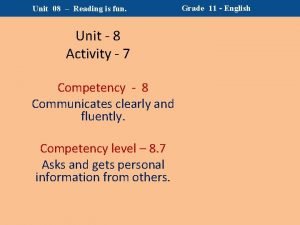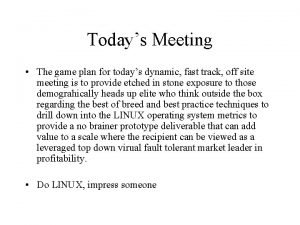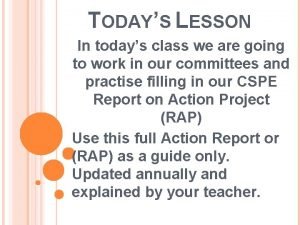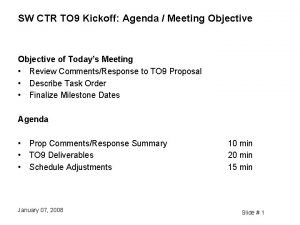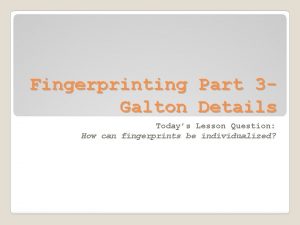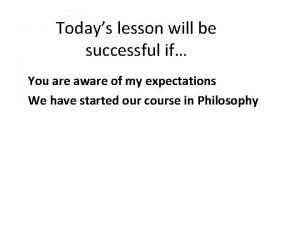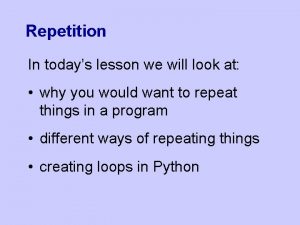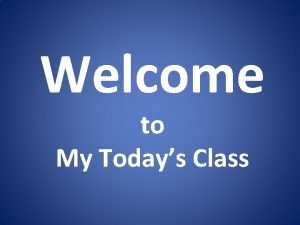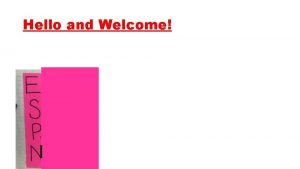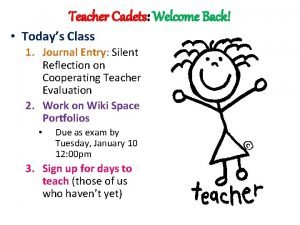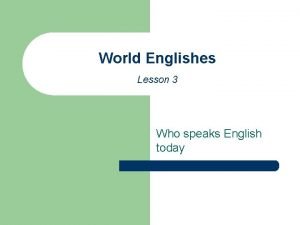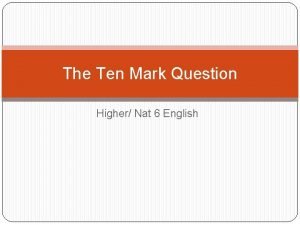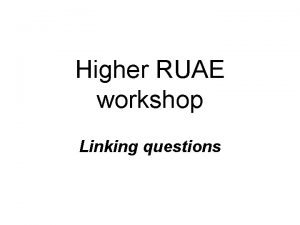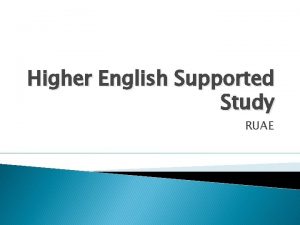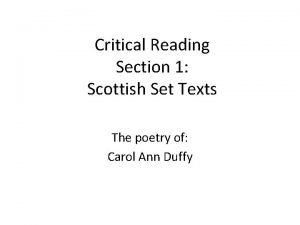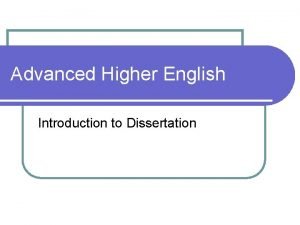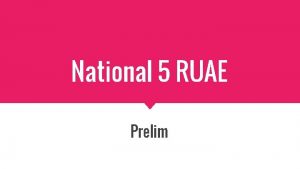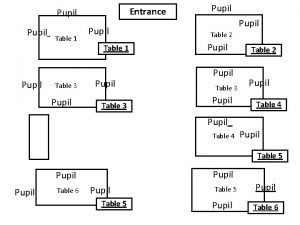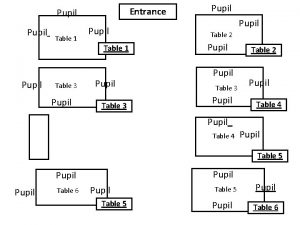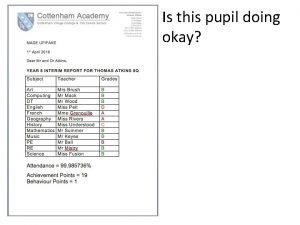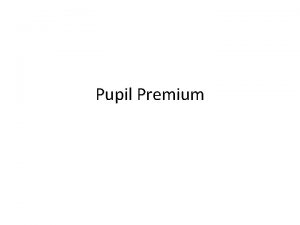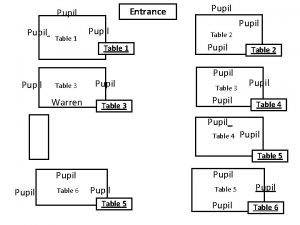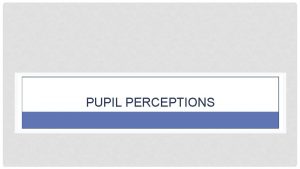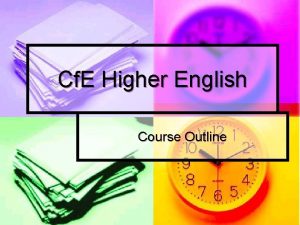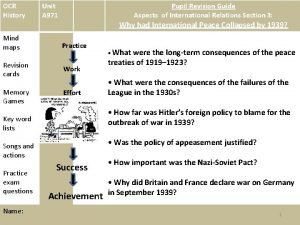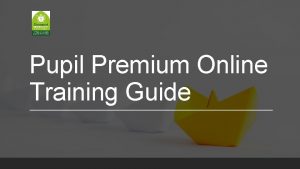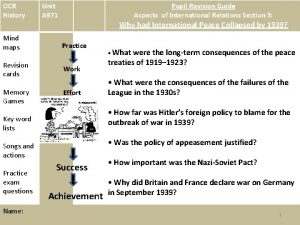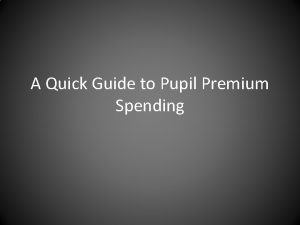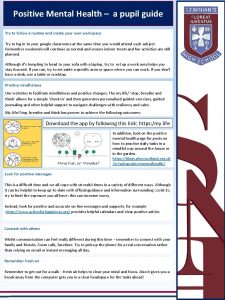HIGHER ENGLISH A Pupil Guide Welcome Today we































- Slides: 31

HIGHER ENGLISH A Pupil Guide

Welcome! Today we are learning about the structure and requirements of the Higher course. By the end of this lesson you will: know the names of your classmates understand what I expect from you as your teacher be aware of how you are assessed be able to tell me what you are good at and where you need to improve Know where to go for help

Why English? I want you to think about why you have chosen to study English to Higher level and write down THREE reasons for your choice. 1) 2) 3) Everyone has different reasons for choosing the subject but ultimately everyone in this class wants to pass and I am here to help you do that BUT you must be prepared to put in the

Overview As you develop your literacy skills, you will be able to process information more easily, apply knowledge of language in practical and relevant contexts, and gain confidence to undertake new and more challenging tasks in a variety of situations. The Course will enable you to communicate effectively, be a critical thinker, develop cultural awareness and be creative.

Working week You will come to English for 5 periods a week. TWO of those periods will be with me in F 29 and the remainder of those periods will be in F 31 with Mr Mc. Guigan.

Who does what? You already know that you will have two teachers this year. This means that you will work on different things with a different teacher. I will help you prepare for the SET TEXT portion of the exam and the READING portion of the exam while Mr Mc. Guigan will help you with your folio and internal assessments and prepare you for the CRITICAL ESSAY portion of the exam.

First Things First. . . Names: here is a quick and (relatively) easy way to remember a lot of names.

Procedures: For those of you who don’t know me I will give a quick explanation of how we work in this class Heading/date Starter Learning intentions Learning log

Materials: the part where we all get new folders!!! And a note on resources… Profile sheets Polypockets Paper Pens/pencils

Homework: the part we all dread! You will have weekly homework tasks based on the poems we are studying in class. You will also have weekly homework tasks where you will be required to read a newspaper article of your own choice and answer a series of questions on it. Failure to hand in homework on three consecutive occasions will result in a referral.

Rules: how we can all work together to make sure that everyone is happy and successful! How can we all work together to make sure that everyone is happy and successful? In groups I want you to make a list of what RIGHTS you should have and what your RESPONSIBILITIES are to others. We will then agree on a class contract that everyone will sign.

Discipline Policy We have already agreed on our rights and responsibilities towards one another. If anyone decides to disregard their responsibility to the rest of the class there will be consequences. 1. Verbal warning 2. 2 nd verbal warning 3. Demerit 4. Moved to front of room 5. Restorative conversation 6. Positive behaviour exercise 7. Removed from class and referred to faculty/pastoral head You can see you will have many opportunities to behave well and CORRECT any bad behaviour before it goes too far!

Targets Now that we all know one another I want you all to take a moment to be completely honest. In your jotter, I want you to write down your target grade for Higher English. Then I want you to think about how we are going to get there. What lessons did you learn at national 5? What did you struggle with? Write down 3 things that you know you need to work on to succeed at Higher. You should do a separate copy on lined paper for me too.

These will be your targets for the coming year.

Help and support You can contact me through the class website www. mrsbhigherenglish. pbworks. com Here, you will find notes on everything we have covered in class, reminders of homework and deadlines and have the opportunity to share information with your classmates. Make sure you use this valuable resource! Your first homework task is to visit the website and leave a comment in the comments section on the front page.

COURSE OUTLINE

Overview Throughout this course, you will develop skills in reading, writing, listening and talking in order to understand use detailed language. The course consists of two units: Analysis and Evaluation, which develops the receptive skills of reading and listening and Creation and Production, which develops the productive skills of writing and talking. You must pass both units to proceed to the final

Assessment You will be assessed in a variety of ways throughout the course. This can include selfassessment, peer assessment and teacher assessment. Any work that you complete in class will be marked and given back to you with comments on things you did well and things you need to improve on. You will copy these comments into your profile and refer to them regularly to try to improve your next piece of work. HOWEVER There are some pieces of work which will be assessed for the exam board and your success

Internal Assessment This will be in 4 areas and are assessed as pass/fail: Analyis and evaluation Reading Listening Creation and production Writing Talk

Reading Assessment - understanding, analysing and evaluating at least one detailed written text This will be testing that you can: Understand, analyse and evaluate detailed written texts by: 1. 1 Identifying and explaining the purpose and audience, as appropriate to genre 1. 2 Identifying and explaining the main ideas and supporting details 1. 3 Applying knowledge and understanding of language to explain meaning and effect, using appropriate critical terminology

Listening Assessment - understanding, analysing and evaluating at least one detailed spoken language text. This will be testing that you can : Understand, analyse and evaluate detailed spoken language by: 2. 1 Identifying and explaining the purpose and audience 2. 2 Identifying and explaining the main ideas and supporting details 2. 3 Applying knowledge and understanding of language to explain meaning and effect

Writing Assessment - at least one detailed written text This is a piece of writing (which can also be used for the portfolio) which will test that you can: Create and produce detailed written texts by: 1. 1 Selecting significant ideas and content, using a format and structure appropriate to purpose and audience 1. 2 Applying knowledge and understanding of language in terms of language choice and technical accuracy 1. 3 Communicating meaning at first reading

Talking Assessment – at least one spoken language activity This will be a talk on a chosen subject to test that you can: Participate actively in detailed spoken activities by: 2. 1 Selecting significant ideas and content, using a format and structure appropriate to purpose and audience 2. 2 Applying knowledge and understanding of language in terms of language choice 2. 3 Communicating meaning at first hearing 2. 4 Using significant aspects of non-verbal communication

What if I fail? Reassessment If you don't pass one or more of your internal assessments first time, you can do extra work and be re-assessed. Any reassessment will involve a further attempt aimed at improving your performance in the same task.

External Asssesment Course assessment comprises a Writing Portfolio and an exam with TWO question Papers.

Folio This unit consists of a portfolio of writing. It is marked out of 30 and is worth 30% of your final mark. It will consists of two essays – one will be creative/reflective and one discursive. Essays will be worth 15 marks each. The portfolio will be sent to SQA for external assessment.

The Exam The exam in May covers everything you've done in the course, so it shows that you've understood what you've learned while working towards your qualification and can put it in context. The exam also helps to decide what grade you get for the course. As you work your way through a course, you will know how you are doing because of the regular unit assessments. You will also gain confidence because the skills and knowledge you are building up and being assessed in are the

Exam Paper 1 – Reading for Understanding, Analysis and Evaluation (close reading) (1 hr) This is worth a total of 30 marks and another 30% of your final mark. You will apply the reading skills you have developed during the course, responding to one, unseen, detailed, non-fiction text. You will have to answer questions that show you understand the writer’s ideas and that you can analyse and evaluate the language used by the writer to convey those ideas. You will

Exam Paper 2 – Critical Reading (1. 5 hrs) This comprises two sections; each section is worth 20 marks and together this paper is worth 40% of your final mark. Part 1 – One critical essay on a text you have studied in class. (20 marks) A range of essay questions will be provided, organised by genre (drama, prose, poetry, language, and film and television drama). Part 2 – Textual analysis questions on an extract from a Scottish text you have studied in class with one longer ‘mini essay’ style question at the end. (20 marks)

Exam Overview Paper One Close Reading 1 hour 30 marks Paper Two Critical reading critical essay - 20 marks textual analysis - 20 marks 1. 5 hours 40 marks

Who does what? You already know that you will have two teachers this year. This means that you will work on different things with a different teacher. I will help you prepare for the SET TEXT portion of the exam and the READING portion of the exam while Mr Mc. Guigan will help you with your folio and internal assessments and prepare you for the CRITICAL ESSAY portion of the exam.
 Grade 8 english unit 8
Grade 8 english unit 8 Today meeting or today's meeting
Today meeting or today's meeting Today there is class
Today there is class Proposal kickoff meeting agenda
Proposal kickoff meeting agenda Galton details
Galton details Today's lesson or today lesson
Today's lesson or today lesson Example of repitition
Example of repitition Today's english class
Today's english class Welcome to today's class
Welcome to today's class Welcome to today's class
Welcome to today's class Welcome to today's session
Welcome to today's session Welcome to today's class
Welcome to today's class Welcome to today's class
Welcome to today's class Welcome to today's class
Welcome to today's class Hello and welcome to today
Hello and welcome to today Welcome to today's session
Welcome to today's session Todays class com
Todays class com Wise men three clever are we
Wise men three clever are we Welcome visitors images
Welcome visitors images English
English English for today class 6 lesson 2
English for today class 6 lesson 2 Sqa higher english understanding standards
Sqa higher english understanding standards Higher english 10 mark question
Higher english 10 mark question The red door iain crichton smith analysis
The red door iain crichton smith analysis Linking questions higher english
Linking questions higher english Sentence structure ruae
Sentence structure ruae How to answer effective conclusion questions
How to answer effective conclusion questions Apostrophe (figure of speech)
Apostrophe (figure of speech) The way my mother speaks carol ann duffy
The way my mother speaks carol ann duffy Advanced higher english dissertation template
Advanced higher english dissertation template Advanced higher health and food technology
Advanced higher health and food technology In your own words questions national 5
In your own words questions national 5
